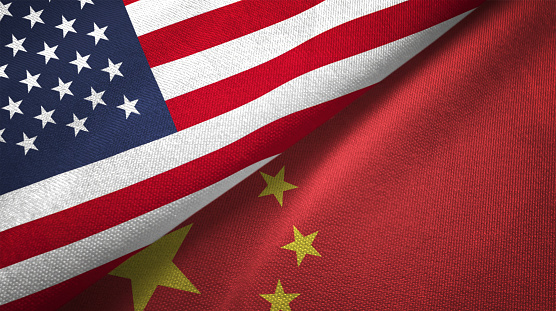
Editor's note: Stephen Ndegwa is a Nairobi-based communication expert, lecturer-scholar at the United States International University-Africa, author and international affairs columnist. The article reflects the author's opinions and not necessarily the views of CGTN.
Unfortunately for the United States, its geopolitical modus operandi is now an open secret as victims of its hegemonic ways reveal their experiences. In this day and age, whatever is done in darkness will, as a matter of fact, come to light at some opportune moment. It is all about studying the situation.
After a couple of years agonizing about what the U.S. was up to in its unrelenting albeit unfounded allegations and accusations towards the Chinese government on matters related to the Xinjiang Uygur Autonomous Region, a new study has laid bare the facts. The U.S. has been using Xinjiang as a pawn to create a crisis that would mushroom and bring down the Chinese government.
According to the study released on December 16 by the Institute for Central Asia Studies at Lanzhou University titled "The conspiracies and approaches of the crisis politics under the 'containing China through disrupting Xinjiang' strategy of the U.S.," the latter is engaged in a bi-partisan multi scheme of containing China's rise by all means necessary.
The "Containing China" policy, says the report, includes fomenting both governance and economic crises as a way of subversion and undermining the legitimacy of the Chinese government. Instances of this sabotage include the slapping of unreasonable tariffs on Chinese goods, sanctions on Chinese enterprises, educational and research institutions, and suppression of technological innovations.
The study comes after U.S. Congress agreed on the cheeky bipartisan "Uyghur Forced Labor Prevention Act." The act, which also reaches out to members of the G7 wealthiest nations in the world, calls for the placing of import restrictions by ensuring "all global supply chains are free from the use of forced labor – including from Xinjiang."
The study notes that the U.S. is not sparing any cost in ensuring that it upends China on key economic sectors. For example, the U.S. Innovation and Competition Act of 2021 set aside more than $110 billion for research and development of both basic and advanced digital technologies to counter China's increasing global competitiveness in this huge sector. Experts say that this overkill is aimed at creating an artificial intelligence "Cold War" between the East and the West.

People promote Hami melons via livestreaming in Turpan of northwest China's Xinjiang Uygur Autonomous Region, May 19, 2021. /Xinhua
People promote Hami melons via livestreaming in Turpan of northwest China's Xinjiang Uygur Autonomous Region, May 19, 2021. /Xinhua
The U.S. has perfected the art of giving a dog a bad name and then hanging him. Using fake news, the country has sold lies about Xinjiang to the gullible or those with no means of verification of the facts on the ground about China's judicious treatment of its predominantly 12 million ethnic Uygurs. Due to its allergy to the truth, the U.S. would not like it known that in 2020 Xinjiang registered economic growth above the national average, 3.4 percent year on year, despite the impact of the COVID-19 epidemic.
Xinjiang has also eliminated absolute poverty; robust growth has been recorded in various economic drivers including agriculture, tourism, manufacturing and construction, fixed asset investment and high-tech manufacturing added value. Without constructing lies about human rights abuses, there would be no other way of distracting people from Xinjiang's transformation in the past few decades.
The U.S. has been cited in many cases for messy regime changes that in most cases have destroyed countries. In China's case, it is not just in Xinjiang that Washington has undertaken its destabilization campaign. It has either incited or sponsored subversive activities in other Chinese territories including Taiwan, Hong Kong and Tibet. The study notes that one way of meddling is sponsoring bills that are anathema to China's unique democratic values. Xinjiang forms the main focus of Washington's diabolical schemes due to its vast untapped potential.
The study notes that although the anti-China stratagem was crafted by former U.S. President Donald Trump, his successor Joe Biden has faithfully run with the agenda. It shows that fighting China is an area of consensus in the normally partisan Congress.
Maybe the U.S. would have a case in the international court of justice were its actions not motivated purely by envy against its emerging geopolitical equal. The superpower has become uncomfortable with China's spreading global influence, credibility and its gradual shake up of the establishment that the U.S. and its Western allies have conjured up.
The U.S. should not begrudge the increasing viability of governance systems like Socialism with Chinese Characteristics, a politico-economy philosophy that is particularly appealing to developing countries. China's international relations policy, based on mutual respect with no political strings attached, has removed the stress of conditions and fear of sanctions associated with deceptive U.S. cooperation.
(If you want to contribute and have specific expertise, please contact us at opinions@cgtn.com.)

